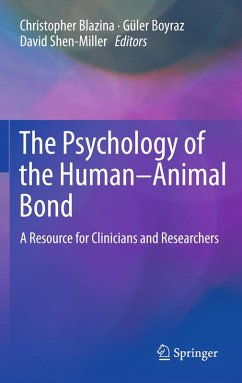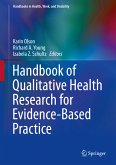A Resource for Clinicians and Researchers
Chris Blazina, Guler Boyraz, and David N. Shen-Miller
Since the domestication of dogs and cats thousands of years ago, the connection between humans and animals has been complex and evolving.Today, it is a significant area of psychological study, and of practice in areas as diverse as animal-assisted therapy and pet bereavement counseling. The Psychology of the Human-Animal Bond offers a contextual framework for understanding the dynamics of this elemental relationship, both in the larger society and on the client level. An international panel of scholars and clinicians from across psychology (as well as from philosophy, literature, and other disciplines outside mental health)explores topics that will help professionals deepen their understanding of the human-animal relationship, translate this insight to practice, and consider questions of identity, attachment, and ethics.
In topics ranging from the universal (health benefits of pet ownership) to the timely (the exploitation of fighting dogs), the reader gains perspective on the numerous factors that influence the bond between humans and animals, and the ways in which the bond reflects our own challenges as humans. Key areas of coverage include:
- Cultural and contextual issues.
- Psychological aspects of attachment and well-being.
- Bereavement, loss, and disenfranchised grief.
- Animal rights, abuse, and neglect.
- Tests, measurements, current research issues,and future directions.
The Psychology of the Human-Animal Bond fills a unique and vital niche, and will be of great interest and practical use to psychologists, clinical social workers, and rehabilitation professionals such as physical and occupational therapists.
Dieser Download kann aus rechtlichen Gründen nur mit Rechnungsadresse in A, B, BG, CY, CZ, D, DK, EW, E, FIN, F, GR, HR, H, IRL, I, LT, L, LR, M, NL, PL, P, R, S, SLO, SK ausgeliefert werden.









